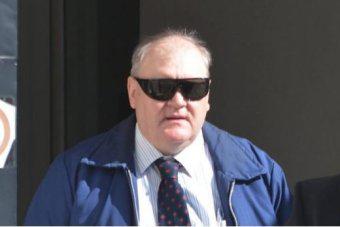|
Church took two years to de-frock paedophile priest John Joseph Farrell, royal commission told
By Tawar Razaghi
The Catholic Church took two years to defrock New South Wales paedophile priest John Joseph Farrell after a report found he posed a risk to children, a royal commission has heard.Former Armidale Bishop Luc Matthys has been giving evidence to the commission as it looks into how the church dealt with decades of abuse allegations made against Farrell. In 2003, the church received a damning report commissioned by Encompass, a church-based organisation, that identified Farrell's pattern of behaviour as being long term and that he was "accountable to no-one". When questioned why the church did not act immediately on the report, Bishop Matthys said the process at the time was arduous. "In those days you couldn't get a laicisation [de-frocking] done without the cooperation and knowledge of the person," Bishop Matthys said. The commission was told Farrell was de-frocked in 2005. During those two years, Farrell's status, title and movements were not officially limited to reduce the risk he posed to children, the commission heard. Bishop Matthys told the commission while he began to ex-communicate Farrell once he received the assessment by Encompass, Farrell was still allowed to wear his priestly robes and be called a priest. The commission's senior counsel assisting, Gail Furness, pressed Bishop Matthys on whether Farrell was made more answerable during the two years the church knew of his assessment. "Having received this, is there anything more you did in relation to his accountability to you?" Ms Furness asked. "Not, that I can recall," Bishop Mathys replied. Earlier in the day, the head of the royal commission grilled the senior clergyman on the compensation process for Farrell's victims. Justice Peter McClellan asked Bishop Matthys how Farrell's victims could be heard by the Catholic Church and redressed for the abuse suffered. Bishop Matthys told Justice McClellan, that while he was in charge, financial compensation was not an option for Farrell's victims. Former and serving clergy acknowledge church's failingsFather Richard Gleeson, who was the then assistant priest at Moree with Farrell in 1984, told the commission he knew senior clergy were aware of the first allegations made against Farrell at the time, but no formal action was taken. "Nothing is formal. There's no management processes. I mean, I'm deeply ashamed about it now, but back then it was just so casual," he said. Father Gleeson told the commission he recalls conversations with colleagues and Farrell himself about Farrell's conduct, but Father Gleeson did not fully comprehend the problem then. He went on to say he learnt more from the Four Corners investigations than he did living in the same quarters with Farrell in Moree during the early 1980s when allegations began surfacing. Later on, the royal commission heard the paedophile priest was only ordained because church officials felt sorry for his devout Catholic mother. On Wednesday, Father Gleeson told the commission church officials had suspicions about Farrell, but ordained him anyway, as a favour to his mother. Bishop Gerard Hanna from the Diocese of Armidale backed the evidence and told the commission he was on a council of priests at the time that recommended Farrell not be ordained because he was unsuitable for the role, as the seminary knew him better than anyone else based on range of reasons including his manner, attitude and personality. Bishop Hanna said the then Bishop of Armidale, Henry Kennedy, was not open to the suggestion and insisted on Farrell's ordination due to the Catholicity of his mother. Bishop Hanna continued giving evidence to the commission and said he raised concerns about Farrell on many occasions. He told the commission that in one instance he encouraged Farrell to plead guilty to charges which were subsequently dismissed in 1988. "My purpose was to try and get through to him, if he is guilty of these charges and if you alone know that and it's your interest and in the interest of the church for you to acknowledge those," Bishop Hanna said. The hearing will resume on Monday when the case is expected to finish.
|
.
Any original material on these pages is copyright © BishopAccountability.org 2004. Reproduce freely with attribution.
